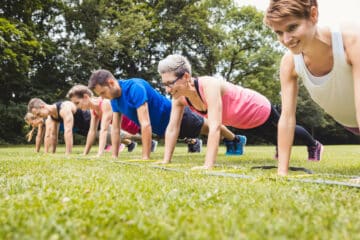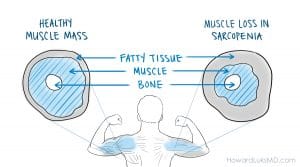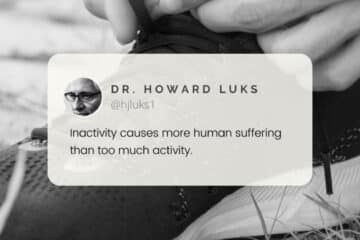
A friend of mine recently told me that she wasn’t sure she could commit to losing weight because she didn’t know if she’d have time to workout. With so many campaigns from major food and drink companies saying it’s fine to consume their products so long as people exercise, I completely understand why my friend was worried about joining a gym.
Let me start by saying that exercise is awesome! It provides so many physical and mental health benefits, and you can always (yes, always) make time to fit in at least a few minutes worth in your day. But, when it comes to losing weight, exercise alone is NOT the answer.
One of the reasons your scale may not be budging, despite your fitness regime, is that you don’t burn as many calories with exercise as you think you do. In one study, normal weight men and women used a treadmill at the same intensity (50% of their VO2 max) until they burned either 200 or 300 calories. After, participants estimated how many calories they burned, then tried to eat the caloric equivalent of their exercise at a buffet. Results showed that in both the 200 and the 300 kcal conditions, participants overestimated how many calories they expended by 3-4 fold, and ate 2-3 times more calories than they expended.
“But I don’t overestimate how many calories I burn because the cardio machine at my gym tells me,” you might respond. Unfortunately, those machines are usually not accurate, even if you enter your gender, weight, and age. There are so many other factors to take into account, like the quality and age of the machine, your form (are you slouched over on the Stairmaster? Are you using the handlebars on the elliptical?), and your fitness level. If someone with 25% body fat who’s never exercised before does the same treadmill run as a marathon runner with 10% body fat, then the person new to exercise will burn more calories. Your body adapts over time to become more efficient, so you’re better off using a heart rate monitor for more accurate and personalized information.
Now, once you have a more accurate estimate of calories burned during your workout, you can think about how that translates into weight loss. Through exercise alone, you need to burn an extra 500 calories a day for one week in order to lose one pound. That’s a huge time commitment! Assuming you are willing to do that much exercise daily, you may run into another problem… you eat more after you exercise, thereby balancing your calories intake versus calorie expenditure and preventing weight loss.
Although it may seem counterintuitive, a growing number of research studies suggest that this compensatory increase in food intake with exercise is NOT due to an increase in appetite. In fact, exercise may act on certain gut hormones to suppress your appetite (1, 2, 3, 4, 5). How does this make sense? It turns out that your appetite doesn’t necessarily correlate with how much you eat. People eat for a variety of reasons that are unrelated to hunger (for example, you may recall eating more when you were stressed out at work, or when you didn’t get any sleep the night before).
In this case, the most common reason people increase their caloric intake after exercise is that they are rewarding themselves for their hard work. Often times, these decisions are made subconsciously. For instance, in one study, researchers “had two groups of people take a two-kilometer walk around a lake. One group was told the walk was exercise; for the other group it was a ‘scenic walk.’ Those who ‘exercised’ ate 35 percent more chocolate pudding afterward than those who went on a scenic walk.”
On the other hand, sometimes people consciously increase their caloric intake after exercising because they think their bodies “need” this reward to recover. This is tricky, because many products aimed at athletes, like granola bars, sports drinks, and protein smoothies, are loaded with extra sugar and calories (often more than you burned during your workout). So, if you can’t make your own bars or smoothies, make sure to read the nutrition labels on the products you purchase.
It’s the start of a new year, and the most common resolution is always to lose weight. As a result, gym memberships are at a high. It’s great that people are so motivated right now, because as I mentioned in the beginning of this post, exercise does a number of great things for your health. But, if you’re getting discouraged because your new exercise routine hasn’t resulted in any weight loss during this first month of 2016, remember that changing your eating habits is going to have a more significant and lasting effect.
Angelina Noriega
Do you have questions regarding an Orthopedic injury or longevity?
Do you want to talk to an expert who can listen to you for 45-60 minutes and explain the options in detail?
Dr. Howard Luks offers remote guidance sessions to review your X-ray or MRI images and explain your options.
Dr. Luks has also received hundreds of requests for educational sessions on the topics discussed in his book, Longevity Simplified.
Cornell University; Class of 2015












